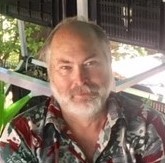FEATURED PAPER
By Dr Professor A.P. van der Merwe, PhD
South Africa
ABSTRACT
Half a century of experience is reflected on in this observation of the project’s phenomenon as it ocurs in nature. The work of the project and the management of the project are not evident in theory. A fundamental premise is that the person performing the work must be fully competent in order for the management to succeed. Attention is drawn to the role of project reporting and its effect on project success in the current information crisis.
1 INTRODUCTION
Scientific method and systems theory present a thought, when studying a phenomenon as it occurs in nature, that a sequence exists when describing it. Projects having a start and finish, follow the stages of a plant lifecycle to achieve a beneficial outcome. Information available on project management is not specific on the daily schedule of a project manager, but contains an abundance of tools and techniques while neglecting the significance of management theory used in managing a team. A major part of the day is spent in dealing with information provided to many parties, some of whom are not involved in the project. The project team educates parties who formulate opinion on the project’s progress, apart from the technicalities that produce the product of the project. Literature was found to have minimal descriptions on the work of the project and what it is that the project manager actually does. Whether a project succeeds or fails hinges on the information distributed about it – more so than on the delivery of technical excellence.
2 BACKGROUND
I started working in 1968 as an apprentice site electrician and gained experience in many different facets of construction work, without being aware of the existence of projects. It was only in 1981, when employed as a project programme scheduler, that I became aware of the existence of projects. As a scheduler, I developed a modular approach for Duva electrical power station, saving hundreds of labour man hours. These modules could be inserted or extracted from ongoing work without having to re-run the entire schedule – which consumed seven days of exclusive use of computer time to do the printout. The result was that a printout could now be made of current work only. It was the practice in those days that every activity on the schedule had to be walked on site to verify progress for the month-end meeting. These modules could also be moved between projects, hence the saving of labour man hours.
I was then asked to do the same for Koeberg Nuclear Power Station, after which I requested to be transferred to the construction site, where I was involved in commissioning Unit One. It was then that I realised that the 27 000 activities on the commissioning schedule consumed a massive number of manhours, and was unwieldy and impractical for management meetings. I applied strategic operational and tactical-level work breakdown structures to make the schedule more manageable.
In 1990 I was asked to set up a project management office. I developed a master project database, a procedure manual, a multi-project prioritising method, and a management system. Each of these had an in-house training programme to train a team of 270 people working on 2000 simultaneously occurring projects on the main transmission system. A set of standards was also produced for prioritising projects, and was accepted by the Electrical Supply Commission of South Africa.
More…
To read entire paper, click here
How to cite this paper: van der Merwe, A.P. (2021). An Inquiry into the Nature of Projects and their Management; PM World Journal, Vol. X, Issue II, February. Available online at https://pmworldlibrary.net/wp-content/uploads/2021/01/pmwj102-Feb2021-van-der-Merwe-inquiry-into-the-nature-of-projects-and-project-management.pdf
About the Author

André van der Merwe
South Africa
![]()
André van der Merwe, BTech, MBA, PhD has 20+ years of practical site experience, receiving a management award for innovation by successfully completing more than 2000 simultaneously occurring projects within time and budget. His 20 years of academic experience include being the founder of the Association for Project Management in South Africa, serving as a member of the Global Forum for Education in Project Management, a committee member of the Doctoral Research Colloquium of Europe, a member of the editorial committee of “Management” journal, and a member of MENSA Society. In 2012, André suffered a traumatic brain injury, leaving him partially sighted. With the help of his wife, Marlette, he remains academically active and contributes to scientific papers. Prof van der Merwe can be contacted at editors424@gmail.com









